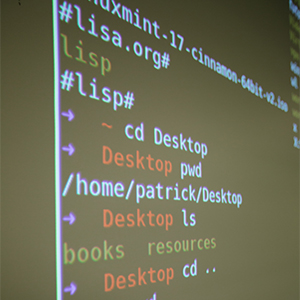
KBR (The Royal Library of Belgium) invites you to attend the KBR Digital Heritage Seminar Series, in cooperation with ULB, UGent, VUB and UCLouvain.
In this virtual series running from October to December 2022, three scholars will present their work on lexical semantic change for the humanities.
Practical information:
These talks will be held, via Microsoft Teams, in English, with questions in French, Dutch or English. The target audience is scholars, but the general public is warmly welcome.
Registration is free but mandatory: Microsoft Forms
-
Tuesday 18 October 2022 at 2PM CEST (GMT +2)
“Change is Key!”
Nina Tahmasebi (University of Gothenburg) & Simon Hengchen (University of Geneva)
Abstract
In this talk, we will present the Change is Key! program, a 6-year research program where we combine methods for semantic change and lexical variation to answer research questions stemming from humanities and social sciences. We will first introduce different classes of methods for computationally detecting semantic change, ranging from topic modelling to contextual embeddings, and discuss how the results should be valued and evaluated.
The talk will further shed light on research questions from the humanities and social science focus domains that will be tackled in Change is Key! as well as present a case-study on semantic change in Dutch-language historical newspapers using topic modelling.
-
Tuesday 8 November 2022 at 2PM CET (GMT +1)
Justyna Robinson (University of Sussex)
“Concept-led approach to semantic change”
Abstract
Semantic change is usually discussed from the angles of onomasiology or semasiology. Thus, one may focus on words representing the same meaning as in child, girl, baby meaning ‘young person’ or focus on meanings attached to the same word, as in girl ‘child, young person’ (c1300) versus girl ‘female young person’. These traditional approaches assume that the meaning lies in data that is conceived of in categorical and linear terms.
In this talk I present a perspective on semantic change in terms of paradigmatic relations across a text. I discuss the findings from the Linguistic DNA research project which analysed concepts in discourse of 55,000 Early Modern English books. I present the most recent theoretical and methodological innovations, which include bottom-up modelling of prosodic meaning.
-
Thursday 8 December 2022 at 2pm CET (GMT +1)
Florentina Armaselu (University of Luxembourg)
“Bridging NLP and LLOD: Humanities Approaches to Semantic Change”
Abstract
Natural language processing (NLP) for detecting lexical semantic change and linguistic linked open data (LLOD) are two areas of research that have shown promising results in the latest years. However, their potential of being considered together for analysing and representing semantic change from a humanistic perspective needs further study and development.
The talk will present an overview of theoretical aspects, NLP techniques and LLOD formalisms intended to this purpose, and will focus on a project developed as a humanities use case within the COST Action “Nexus Linguarum – European network for Web-centred linguistic data science.” The discussion will include preliminary thoughts on the conception of a system that combines dictionary information with corpus evidence, and provides multilingual diachronic ontologies for humanities research.
Practical information:
These talks will be held, via Microsoft Teams, in English, with questions in French, Dutch or English. The target audience is scholars, but the general public is warmly welcome.
Registration is free but mandatory: Microsoft Forms
You will be sent the link to the virtual meeting on the morning of the event.
This series is co-organised by the following research Labs at KBR: Digital Research Lab, Data Science Lab, CAMille and LabEL, in cooperation with Université libre de Bruxelles, Universiteit Gent, Vrije Universiteit Brussel, and Université catholique de Louvain.



